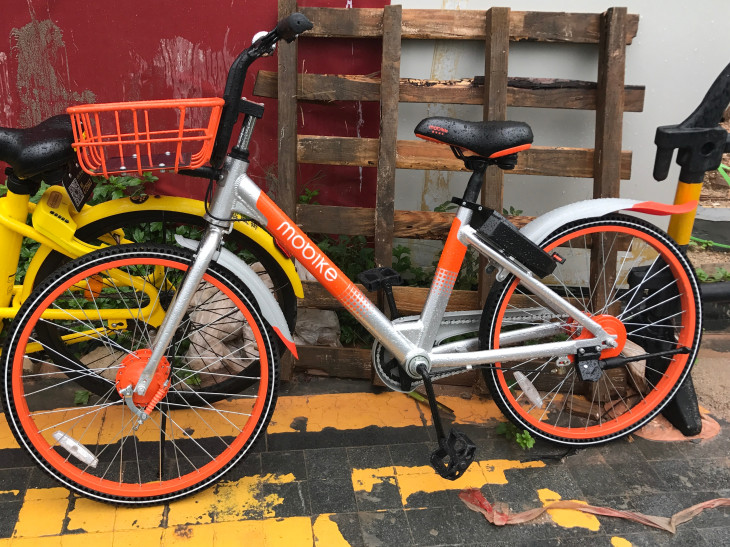Chinese bike-sharing company Mobike entered the Latin American market in Mexico City this year drawn by its millions of potential clients. Now it has run into a problem increasingly plaguing the country: street crime.
Theft has been so widespread that in the past few days, dozens of the app’s customers have complained on social media about the lack of available bicycles. Many of them told Reuters they are thinking hard about switching to the competition.
Mobike, the largest bike-sharing company in the world, said shortages were due to theft as well as growing demand for the 500 bicycles available in a small part of the capital while it awaits clearance from city authorities to expand further.
Mobike has been working with law enforcement agencies in Mexico City to recover the stolen bicycles, said Rene Ojeda, director of the Mexican arm of the Beijing-based company.
Since it entered the Mexican market in mid-February, Mobike subscriptions have risen by 70 percent per week, he said.
But the Chinese company faces stiff competition in the capital. Mexican VBike operates with some 2,000 bicycles and EcoBici, a bike-sharing firm launched by Mexico City’s government, has 6,500 units and more than 260,000 users.
“Mobike was a good option for me since I work in the area,” said Fernando Galicia, a disgruntled Mobike user in the metropolis. “But I’ve gone to EcoBici, and not because it’s cheaper, but because they always have bikes.”
Arantxa Nava, another Mobike user in Miguel Hidalgo, a wealthier borough and the only one where Mobike currently operates, complained she “never” came across available bikes.
Reuters found almost 60 bicycles using the app, which equips them with GPS-trackers, in Tepito, a tough neighborhood north of the historic city center best known for its black markets where clothing, pirated films and illegal drugs flow freely.
Ojeda said some Mobike users commute to work on the bicycles and leave them in Tepito, which is outside its operating area. But after reviewing the app at various points this week, Reuters found that none of the Mobikes there ever left Tepito.
Thieves are “using the bikes to move drugs,” said a Tepito resident, who asked to remain anonymous due to security fears. Two other residents of the area corroborated his statement.
The Chinese firm did not respond to these allegations.
Mobike, which recently changed hands for $2.7 billion, equips its bicycles with an electronic alarm that alerts the company when one of them leaves its operating zone.
Each bike also carries more than 60 patented parts so that they cannot be sold for use on other bicycles.
For now, the bikes thieves have gotten away with it.
Theft is not a problem unique to Mobike in Mexico.
This week, business leaders called out the government over a recent crime wave that has hit Mexico and forced several firms to shut down operations or spend millions of dollars on security in Latin America’s second-largest economy






